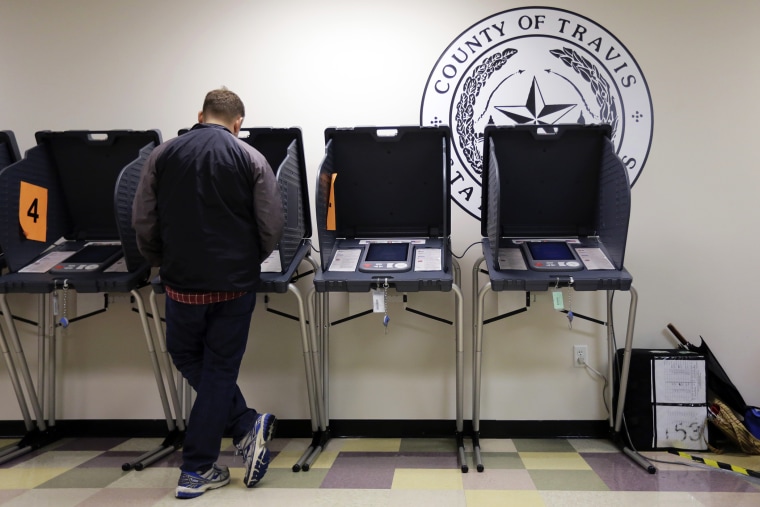A U.S. Appeals Court has ruled to put Texas's strict voter ID law back in place for the upcoming election. [...] A three-judge panel of the 5th Circuit Court of Appeals on Tuesday afternoon unanimously stayed an order issued Saturday by U.S. District Court Judge Nelva Gonzales Ramos that had blocked the controversial law.... "Based primarily on the extremely fast-approaching election date, we STAY the district court's judgment pending appeal," Judge Edith Brown Clement, an appointee of President George W. Bush, wrote. It cited Purcell v. Gonzalez, a 2006 case in which the Supreme Court stopped an Arizona voting law from going into effect close to an election, to avoid causing confusion among voters.
If you read just one top-to-bottom dismantling of every supposed premise in support of disenfranchising Photo ID voting restrictions laws in your lifetime, let it be this one [PDF].
It is a dissent, released on Friday, written by Judge Richard Posner, the Reagan-appointed 7th Circuit Court of Appeals judge who was the one who approved the first such Photo ID law in the country (Indiana’s) back in 2008, in the landmark Crawford v. Marion County case which went all the way to the Supreme Court, where Posner’s ruling was affirmed.
If there was ever evidence that a jurist could change their mind upon review of additional subsequent evidence, this is it. If there was ever a concise and airtight case made against Photo ID laws and the threat they pose to our most basic right to vote, this is it. If there was ever a treatise revealing such laws for the blatantly partisan shell games that they are, this is it.
His dissent includes a devastating response to virtually every false and/or disingenuous rightwing argument/talking point ever put forth in support of Photo ID voting restrictions, describing them as “a mere fig leaf for efforts to disenfranchise voters likely to vote for the political party that does not control the state government.”
